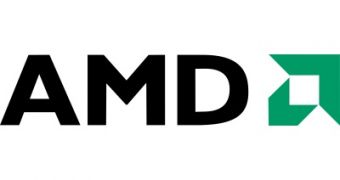After Intel had its time in the spotlight, earlier this month, announcing its plans to accelerate the adoption of the 32nm process technology, it appears that time has come for AMD to take the stage and showcase some of its upcoming products, thus keeping an open interest in the upcoming products of the Sunnyvale, California-based chip maker. The company has recently given a first working demonstration of what should become the company's next-generation Opteron processors, codenamed “Istanbul.”
According to a recent news-article on The Tech Report, AMD is also getting ready with its next-generation server processors, which will boast no less than six-cores. Codenamed Istanbul, the upcoming CPUs are meant to provide a straightforward upgrade to AMD's current “Shanghai” Opterons. The new chips will basically come as 45nm, six-core processors featuring 6MB of L2 cache and Socket-F compatibility. The new chips are designed to take advantage of some technologies that are available with the company's current Opteron lineup, including HyperTransport, support for two channels of DDR2 memory, per socket and the same 2P, 4P, and 8P infrastructure.
The chip maker has been showcasing its new silicon in action using the Task Manager on the Windows Server 2008 desktop, to demonstrate the activity indicators of each core on a quad-socket platform. A second demonstration included a dual-socket system and a primary Windows Server 2008 operating system. The system was used to host three separate virtual machines, including Windows Server 2003, Red Hat Linux, and SLES 11 x64, each one taking advantage of four dedicated cores. In the third demo, AMD wanted to demonstrate how the Istanbul chip can be used as a drop-in replacement for current Socket F systems.
Unfortunately, AMD did not detail any specific date for the official release of its next-generation Opteron processors, but according to earlier reports the new processors should make their debut later this year. However, given that the company already has a working sample, we might see the new Opterons earlier than expected.

 14 DAY TRIAL //
14 DAY TRIAL //